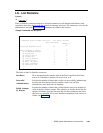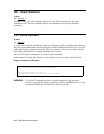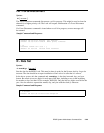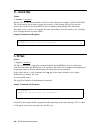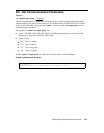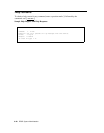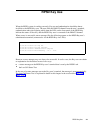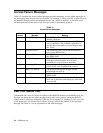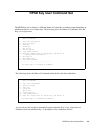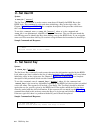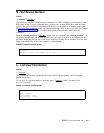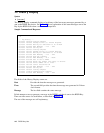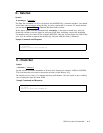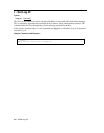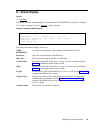
Access Failure Messages
Table 4-1 describes the access failure messages and their meanings. Access failure messages do
not necessarily mean that an error has occurred. For example, if a Key user fails to gain access to
the RMATS channel because the administrator has put a block on that Key, or because access
has been restricted for that time of day, then the system is functioning properly.
TABLE 4-1
Access Failure Messages
Code Access Failure
Number Message
Meaning
1 No RPSD/Key Detected The RPSD Lock and RPSD Key were unable to
initiate a dialogue
2 No Response
The RPSD Key did not respond to the RPSD
Lock’s challenge. The probable explanation is
that the Key was unable to receive the data from
the Lock.
3
Invalid User ID The RPSD Key user’s ID is not in the table of
users on the RPSD Lock.
4 Blocked User The RPSD Key was administered as blocked on
the RPSD Lock.
5 Invalid Response The RPSD Key responded to the RPSD Lock’s
challenge, but the response was incorrect,
probably due to an incorrect secret Key.
6 Outgoing Call An outgoing call is being placed from the RPSD
Lock, so the Lock terminated the session.
7 Ring - No Answer The RPSD Lock rang the modem, but the
modem did not pick up.
8
Force Disconnect
A Force Disconnect command was issued to the
RPSD Lock.
9
Time Restriction
The call was placed during a time of day when
the Lock is restricted from taking any calls from
your user ID.
Last Call Status Test
To determine the cause of a failure to connect to the RMATS channel via the RPSD Lock, the
Key user can obtain the last status message sent by the Lock by simply dialing the RMATS
channel from a touch-tone telephone. When the Lock responds by sounding a tone, press
2 ✱
on the phone pad. You should hear a number of beeps equal to the number of the last status
message. See Table 4-1 for an explanation of the status messages.
4-2
RPSD Key Use



